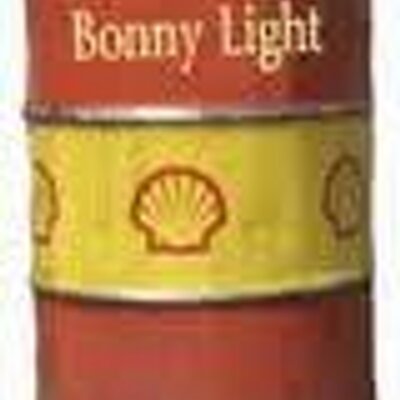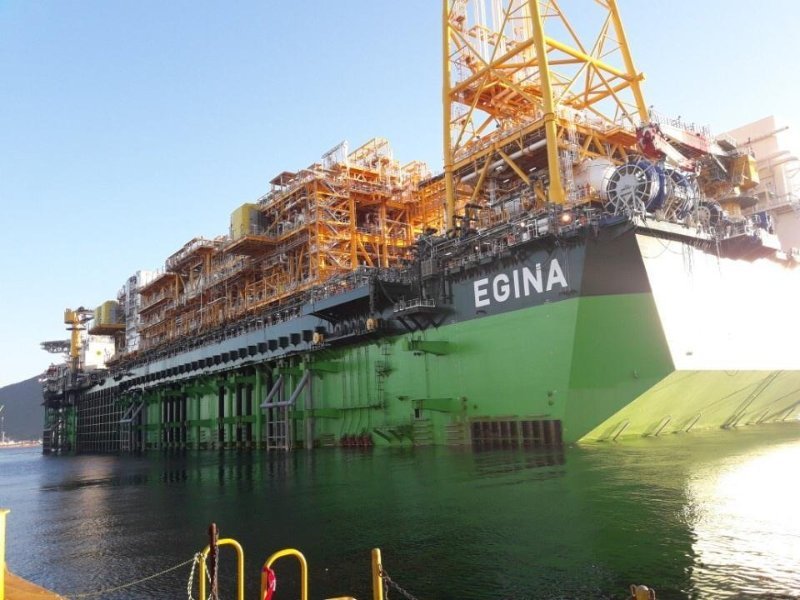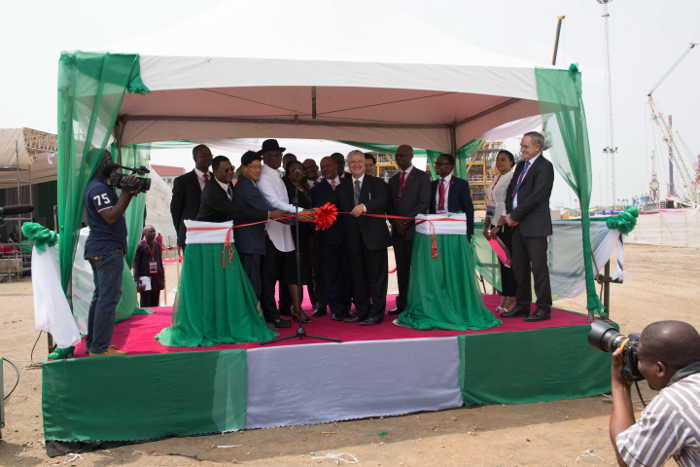Jubril Adewale Tinubu needs little or no introduction, under his leadership as Group Chief Executive Officer, Oando Plc has grown from strength to strength and increased its asset and capital base. Under his watch, the company has also expanded into other sphere in the energy value chain. In this interview which held in Lagos, he commented on several issues as well as the reason behind the high cost of air travel within the country and the reason behind scarcity of Kerosene in the country as well as future plans to grow the company’s operations in the domestic and international market. Yemie Adeoye was there for Sweetcrude.
Excerpts:
How much is Oando investing in its ongoing gas project across the country?
In terms of gas project and the value, Oando is investing half a billion dollars over the next thirty six months. On Local content, Oando is actively discussing with NNPC and the majors, towards being able to participate in oil field production, we have some assets like we mentioned earlier, we have interest in up to 11 assets at different stages of production development as well as appraisal and exploration, so we do have assets but we want to increase them, and in terms of making more money upstream, the point is that we are making more money in terms of cash perspective from the downstream sector, but from a percentage of overall group sources, the downstream is now less than the upstream. But on cash basis we are making more money in the downstream this year compared to that of last year, so the downstream is growing, the difference between the upstream and the downstream is that the downstream is driven by GDP. You are not going to buy more cars except the economy grows, if the economy grows by 7 per cent maybe if you’re lucky you’ll see a 5 per cent growth in the volume of consumption, but in the upstream we are servicing the global market. Nigeria has moved from 1.6 million barrels of oil to 2.6 million barrels of oil production per day. At the height of the militancy we dropped to 1.6 million barrels, so to produce 2.6 million barrels means that we are producing more than enough oil and there are lots more energy services and drilling going on, and you don’t have a cap in terms of how much you can grow the business because you’re servicing the world, whereas in the downstream you’re servicing your own geographic area so there is a limit to how much you can grow. Oando can be a multi-billion naira profit company in the upstream but can never achieve that in the downstream.
Why did Oando lose out in the divestment by Shell?
If we look at the banking industry we have seen Oceanic bank almost die, while Bank PHB seems to be having cold. The point is this, we are a responsible company, when people start to bid a billion dollars for one oil bloc, it means that they don’t know what they are buying and when you look at the list of the companies you see that their consortium is made up of six to seven people adding money, borrowing and pushing prices up, and that is why they are struggling to conclude the transaction, and by the time you do your verification you will see that people who said they were going to pay are dodging banks, people that promise to finance some of them are no longer there anymore and it is something that we don’t want to do, we saw what happened to an oil company which was purchased at fifty times its original value. It is we the tax payers that are now paying for the mistakes of business people who did not know what they are buying coupled with banks who did not know what they were financing, eventually the government had to spend 4 billion dollars to clean up the mess created by irresponsible companies and irresponsible bankers and I think that has transferred itself to the upstream, we are going to see some failures coming out of irresponsible decisions, and as you have heard we are at the forefront, so if anybody is going to get access it should be us, but there was a time when the biding got to a certain level when a responsible company can reach out for it, and that was what we (Oando) did, When we bought OML 125,134 production was $18 per barrel, with 18,000 barrels a day, today production is 33 thousand barrel and we bought it for $200 million and that was a 15 per cent stake, thus effectively valuing the asset at 1.5 billion, when we bought it, crude oil price was $95 a barrel, presently crude oil is 150 dollar per barrel, production was fifteen thousand barrels a day in the first year of operation, we did 100 million barrels, we paid off the loan, we borrowed it back and we have paid back three times, because when you produce, you pay off your loan and when you finish paying your loan you borrow another cash again on the same asset and build something else maybe gas project.
In view of the lingering kerosene scarcity in the country, why is Oando and by extension MOMAN members not importing the same way they import petrol and diesel?
The importation of kerosene is NNPC’s monopoly, the choice to subsidize kerosene is from NNPC, kerosene subsidies are not available via the PSF fund, and the PSF funds only cater for petrol. The PSF fund used to cater for kerosene, and we imported it, but it was then deregulated and we continue to import it. Thereafter, NNPC chose to subsidize it in the last nine months so we stopped importing it, we don’t import products that we cannot sell at market price or the government cannot pay us the differentials. The government wants to regulate the price and that is the reason why major marketers are not encouraged to import kerosene.
MOMAN members under your Chairmanship have been accused of short changing the system by receiving kerosene at government price and diverting it to the Aviation sector as Aviation fuel to make more profits, what is your view on this?
MOMAN members do not take kerosene and divert it to the aviation sector as being alleged. I dare anyone to mention the name of the company because I don’t know of any company engaged in this practised. I look forward to them mentioning the name of the company that received kerosene and took it to the airport and put it in the airplane, there is no point making stupid comments, or making a statement without backing it up with facts and figures that is number one, the number two is that the reason you see the fluctuation in kerosene supply is because it is a subsidized product that doesn’t receive the right level of subsidies all the time. When something is liberalized everybody brings it in, on one hand when it is something like kerosene that is subsidized or the supply is not constant because the supply is being monopolised by NNPC, if the subsidies are made available in PPPRA it will always be available all the time because everybody will be importing it, so it’s the NNPC that really wants monopoly. Look at petrol supply, the private sector imports 60 per cent of the petrol consumed in Nigeria, there was a time when NNPC bided for 100 per cent but look at today the country has 150 million people. There was a time NITEL was a government cooperation being funded by the government but NITEL no longer exists today, look at electricity generation today, over 50 per cent of electricity is generated by generators, you see that it is from the private sector, so let’s not kid ourselves, the private sector runs Nigeria and it is ten times larger than the public sector and we underestimate the impact of the private sector, so if NNPC is going to subsidize kerosene supply on its own then we will wait and whatever they give us is what we will sell, but we know they can’t give us what we need and so there will be problem but when it is fully liberalized then there will be no problem.
Kerosene is in short supply in the market and that is why it is being sold for N100, the good news about kerosene is that it can be sold by anybody; it is not like petrol that has to be sold in a petrol station because it is dangerous. Only NNPC has the power to subsidize kerosene.
How do you plan to integrate your share structure into the Group?
First of all we were thinking of doing the market listing but had to suspend it because the market conditions now is not very good, market has been dropping and it is not a good time to list the business. But I think it is important to note that our marketing business is only 30 per cent of our group and it is one division and what we want to do with our group is to ensure that you have a better quality comparison of the value, the value of the part when it is transparent is more than the whole when it’s in a group.
However if you could create a way and manner to compare each of our division properly against the peers in that division then you will be able to ascribe better value to the group as a whole, for example as a fuel distributor even if our marketing arm is only 30 per cent of our group we will be the biggest marketing company in the country, so let it be clear in not just what we say and what the statistics say regarding our volume but let it also be clear financially by ensuring that the marketing company is listed so you will be able to compare Oando marketing company versus Total, Conoil, MRS or AP, and that will be from a financial perspective. For every dollar they make you will expect us to make that same dollar or more so that you can see it and compare it line by line, although you can still do it now because in our full account we published an abridged version so you can’t gain access to that. That was the logic behind it, but it doesn’t disturb your holdings in Oando Plc, Oando Plc will still own the majority interest in Oando marketing, Oando marketing will be traded and listed but for now it is on hold because the market is low, if we sell a stake in it now we’ll be selling at an undervalue, so we’ve chosen to put that on hold.
Wouldn’t your offshore investments dilute your shares?
No! You only suffer a dilution when new shares are sold, but the essence of listing in another market is to enable shareholders who live in these markets to buy your shares, such that we experienced when Nigeria had its crash, you know our own crash was two years after the foreign crash, the foreign market was already recovering when we had our own crash. What we did because we had a foreign listing of N20 naira in our rights issue, seventy per cent came from offshore, if we didn’t have that foreign listing we would have relied only on the Nigerian market, the Nigerian market which you know don’t have money. People were suffering huge losses, nobody was ready to invest, people removed their money from banks and were ready to hide it under their pillow, so the essence of having a multiple listing is to enable people from other parts of the world to participate and 30 per cent of Oando shares is held by foreigners, 50 per cent of our loan book is by foreign banks who don’t even have branches in Nigeria, and that is the importance of having international profile as a business. ExxonMobil that is here sells shares all over the world and looks for oil all over the world, Chevron or Total sells shares across the world, Total doesn’t sell their share to France, but they sell their shares to America to Asia and to Australia and then they trade across the world that is what we plan to do so we can as well have the profile of an international company.
Isn’t the risk on the high side in some of the projects you mentioned as major projects as such needs to be supported by a strong financial pillar in terms of sustained income flow?
Let’s take a critical look at Lagos gas, people spend probably $500 million dollars a year minimum in buying diesel in Lagos metropolis alone, and we offer them the same product at half the price, so how can we lose money? How can you not make money? The difference is who has the guts to do it or who has the ability to put the management team together. Who can strategize, design, execute, of course when we say execute it means that you have to be focused, you know we have a team of very smart people running the company, people who have come from Shell, Chevron and people who have just come out fresh from school are trained in the company, and they are the people behind these projects and they execute it to world class standard, so if you take a look at our history we are a company that have grown from strength to strength, we only left the downstream when we were number one and we are still there as number one, we have not dropped to number two.
It is only when we have finished building Lagos that we attempted Calabar, we have finished that and we are now moving to Rivers, we have completed that so our growth is 1 step 2 step, we don’t do things at the same time, so when we started Lagos gas pipeline, the first phase was seven Kilometres, phase 2 was another twelve Kilometres and phase 3 is over 30 Kilometres and now we are about 50 Kilometres and that is how we get to hundred. We did it in phases and in Calabar we did it at one shot because we are already experienced in doing it so we are going to manage it. We will do Rivers too in one shot but we will divide Ibadan and Ilorin. We will build Abeokuta first then Ibadan and Ilorin we will do them step by step. To answer your question we are a company that takes bold steps with a very disciplined financial perspective and also from a very conservative balance sheet, our debt equity ratio is healthy, we have about N100billion of long term debt and we have about N197billion of shareholders’ funds so for every one naira that we borrow we have one naira as capital in the company. The other short term loans we have are all just our Letters of Credit which we use to import petrol, ship on water and oil in the tank and terminals. We also give credit to the likes of Dangote, Nigeria Breweries and the good quality companies we give credit to as well as the airlines (all foreign airlines), but it is a very disciplined approach we have, we design a project, we ensure that it’s approved not just locally but from international inspectors to make sure, we raise the funding for the project hoping that it will do for a 5-7 year loan, the Lagos phase 4 loan we took was for five years, even as far back as seven years when we bought Agip, it was a $90million loan that we took, we were to pay back the loan in 4 years but we paid in it off in two years, so we will borrow longer than we need and we payback earlier and we have substantial cash rate by half year this year. We have made N20 billion, our earnings before was N20billion but for full year our earning will be at least N40billion. With N40billion per annum and if you take 20 per cent as interest that means we have borrowing capacity.




